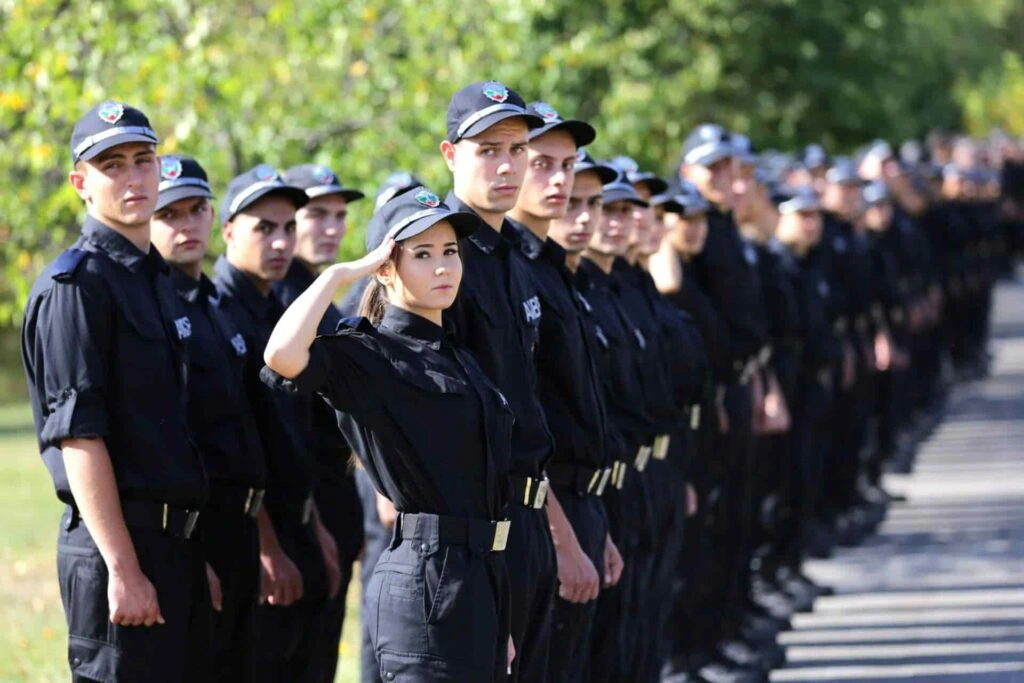Everything You Need to Know About Becoming a Police Officer

If you’re looking for an exciting career and want to serve your community, then a career in law enforcement is a perfect fit! If you want to be a police officer, you’ll need to complete police academy training. After graduating from the Lackawanna College Police Academy program, you’ll be eligible to take the Pennsylvania Municipal Police Officer Basic Training Program (ACT 120) state certification exam, which will qualify you to become a municipal police officer in the Commonwealth of Pennsylvania.
Law Enforcement Careers are In-Demand!
Employment of police officers and other occupations in the law enforcement field is projected to grow 7% through 2030, about as fast as the average for all occupations. The median annual wage for police and detectives was $67,290 in May 2020.
A Pennsylvania Municipal Police Officers certification (Act 120) opens doors in the law enforcement field. You’ll find employment in:
• police departments
• local government
• State government
• Federal government
What You’ll Do as a Police Officer
As a police officer, you’ll be responsible for enforcing the law by protecting people’s lives and property. Every day will bring new and exciting challenges and will be expected to take on a wide variety of roles!
Some duties you might have as a police officer include:
• Responding to emergency and non-emergency calls.
• Patrolling assigned areas and observing people and activities.
• Arresting people suspected of committing crimes.
• Preparing cases for legal proceedings and testifying in court.
There is a lot to consider when looking into how to become a police officer: What are the police academy requirements? How do you obtain your police officer certification? This article will go over these questions and more.
How to Become a Police Officer
Whatever kind of police work you want to do — as well as your level of education — will affect how long it takes for you to get a career in law enforcement. Jurisdictions throughout the commonwealth hiring requirements vary. To serve as a Pennsylvania Municipal Police Officer you have to earn a certification from the training commission. The Lackawanna College Police Academy program is designed to be completed in eight and a half months for full-time cadets or 12-13 months for part-time cadets.
The minimum age to enroll is 18 years of age. As you progress, higher education is necessary. Your police academy education at Lackawanna College is the gateway to expanding your profession in law enforcement.
Police Academy Requirements
Police academies vary quite a bit from state to state, however, requirements in the Commonwealth of Pennsylvania are:
• A high school diploma or GED.
• Before getting accepted into the police academy, you will have to complete a physical medical exam which includes a drug screen, and a psychological exam as well as meets the physical fitness requirements established by the state training commission.
• You must possess a current driver’s license and will be required to provide a driving record.
• The minimum age to enroll in the academy is 18 years of age.
• A background check will be required that includes a state, federal and local background check along with letters of recommendation. This may also include interviews with past employers, family, or friends.
How Long Does It Take?
Once accepted into the academy, as required by the training commission, it is important to know that attendance is mandatory at all sessions.
Lackawanna College’s full-time police academy courses are approximately 7-8 months and part-time police academy courses are approximately 12-13 months. The total program length can be impacted by college and federal holidays.
Lackawanna College offers a unique opportunity to obtain certification from its Police Academy along with an associate degree in Criminal Justice in two years. Lackawanna is the only private college in Northeastern Pennsylvania that provides this combined education.
Once you become a police officer, your training isn’t finished. Obviously, you will learn a lot on the job, but most departments these days also require some form of continuing education.
You may also find interests that you didn’t know you had when you first applied to the police academy. With a career in law enforcement, there are plenty of opportunities for growth. You could become a detective, a forensic analyst, or even an FBI agent.
Your future in law enforcement starts at Lackawanna College with a local, affordable, career-focused education. Apply today!
